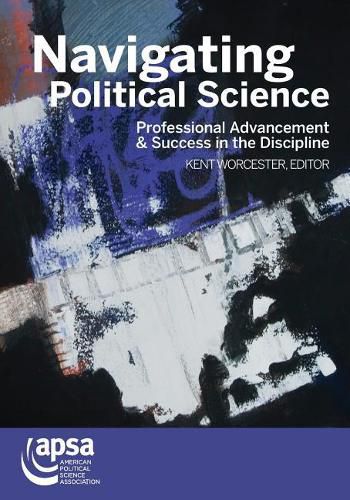Readings Newsletter
Become a Readings Member to make your shopping experience even easier.
Sign in or sign up for free!
You’re not far away from qualifying for FREE standard shipping within Australia
You’ve qualified for FREE standard shipping within Australia
The cart is loading…






Navigating Political Science: Professional Advancement & Success in the Discipline brings together some of the most noteworthy discipline-focused contributions to APSA journals published over the past decades. It offers a wide-ranging compendium of 28 chapters by 45 contributors, on topics ranging from peer reviewing, mentoring, and faculty governance to blogging, data collection, and digital media in the classroom.
The volume is organized into five sections: Tasks and Responsibilities, The Classroom, Field Research, The Profession and the Public, and Self-Conceptions. While it proceeds from pragmatic concerns to theoretical debates, the earlier sections address substantive issues, and the latter sections are attentive to the practical and institutional implications of various theoretical and methodological claims and positions.
Navigating Political Science includes narrative essays, how-to essays, empirical studies, and presidential speeches. In addressing the day-to-day work of the profession–teaching, writing, editing, advising, field research, and so on–the book should prove relevant and interesting for political scientists across the board, from aspiring ABDs to seasoned PhDs.
$9.00 standard shipping within Australia
FREE standard shipping within Australia for orders over $100.00
Express & International shipping calculated at checkout
Navigating Political Science: Professional Advancement & Success in the Discipline brings together some of the most noteworthy discipline-focused contributions to APSA journals published over the past decades. It offers a wide-ranging compendium of 28 chapters by 45 contributors, on topics ranging from peer reviewing, mentoring, and faculty governance to blogging, data collection, and digital media in the classroom.
The volume is organized into five sections: Tasks and Responsibilities, The Classroom, Field Research, The Profession and the Public, and Self-Conceptions. While it proceeds from pragmatic concerns to theoretical debates, the earlier sections address substantive issues, and the latter sections are attentive to the practical and institutional implications of various theoretical and methodological claims and positions.
Navigating Political Science includes narrative essays, how-to essays, empirical studies, and presidential speeches. In addressing the day-to-day work of the profession–teaching, writing, editing, advising, field research, and so on–the book should prove relevant and interesting for political scientists across the board, from aspiring ABDs to seasoned PhDs.